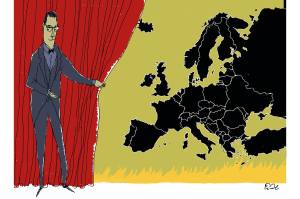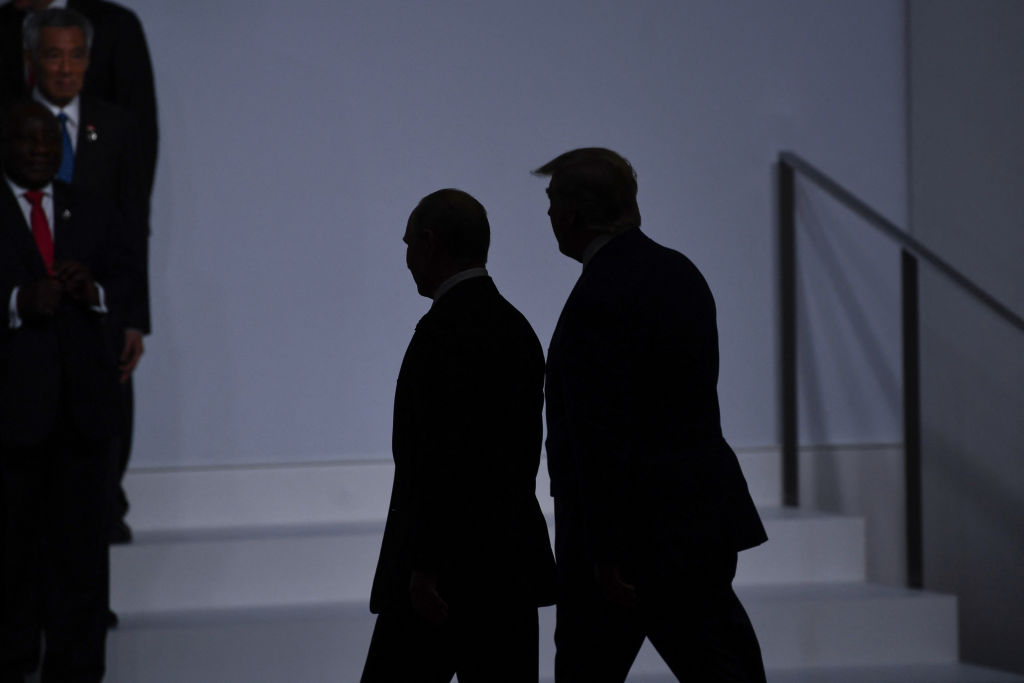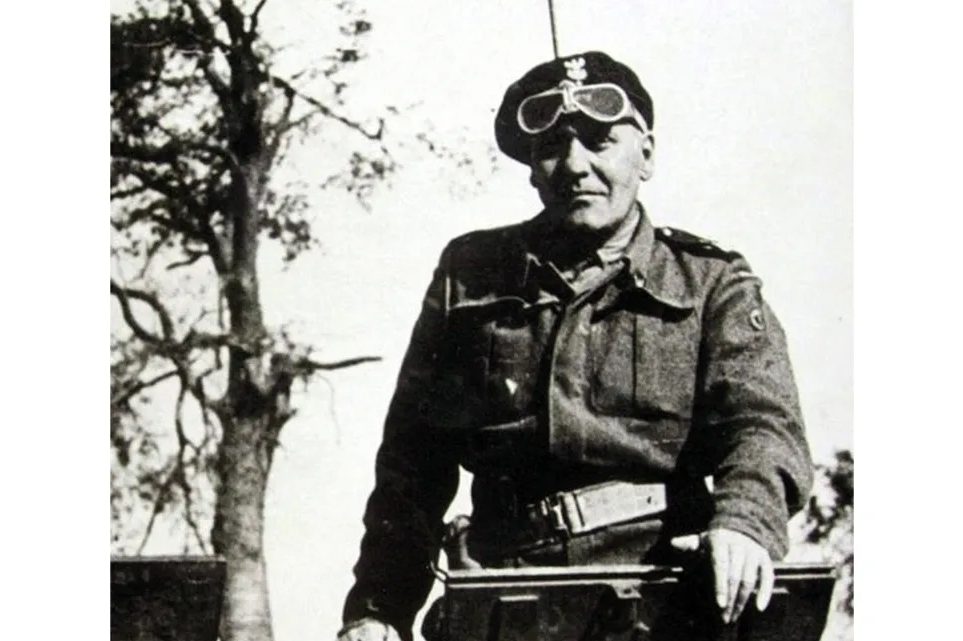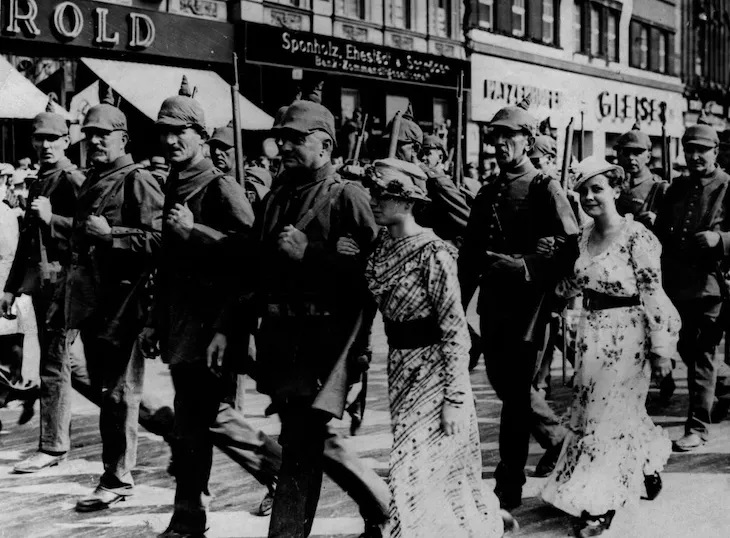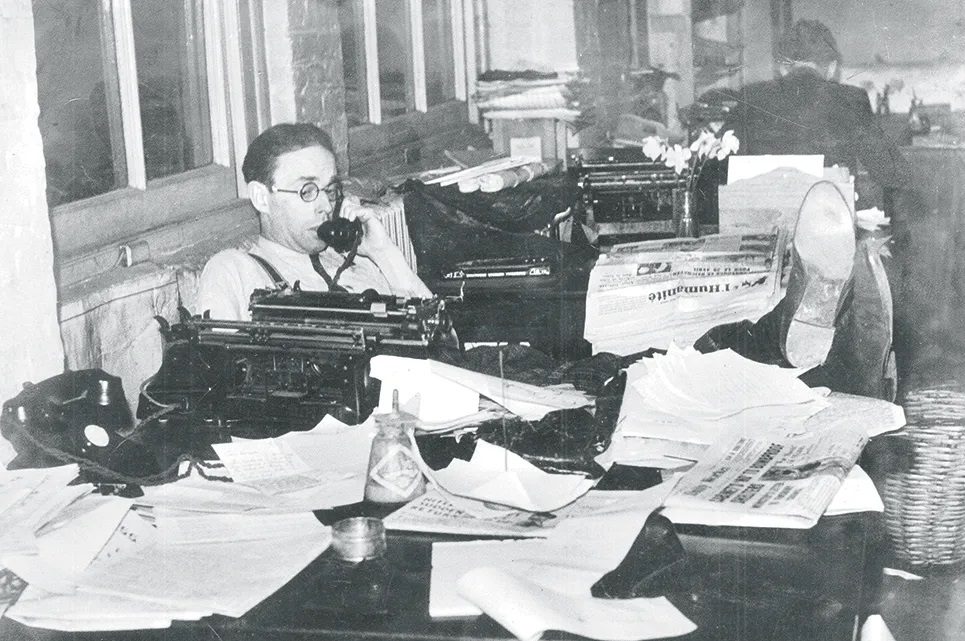Do any of you remember the time when everything took place on the terraces and in outdoor cafés? Before everyone retreated into laptops and mobile telephones and Twitter? When the streets thrummed with possibility and the potential for new encounters was everywhere? Well, that’s all gone now, thanks to some pretty ugly looking fellows with names such as Dorsey and Zuckerberg, but we’re the ones who adopted their useless inventions and live by them as if they were the Sermon on the Mount. The social consequences have been devastating — the young make noises instead of articulating speech — and had Cassandra been around 20 or so years ago she would have warned us against the tech companies that have the power to change our way of life.
Never mind. What’s done is done, and there are always books to remind us what the world was like before lookers such as Bezos took over. My friend Leopold Bismarck is always slipping me books that make me want to shoot anyone, everyone, from Silicon Valley. He even found one about Hemingway that I hadn’t read, which was like discovering the beautiful daughter of a farmer while looking for a needle in a haystack.
Bolle’s latest gift is a book-diary written by his cousin Hans-Georg von Studnitz, a diplomat who survived horrific bombings in Berlin — both his country seat and city house were totally destroyed — as he chronicles the key events of the war from 1943 to the end. What emerges in the diaries is the terrible devastation and loss of life as a result of the Allied bombing, but also the dignity of Berliners in the face of disaster. But what really makes his opus sparkle is its portrait of the upper-class set he (Studnitz), a nobleman, frequented, and of a particularly glamorous Polish evening involving Count Ciano, Mussolini’s son-in-law and the Italian foreign minister.
Galeazzo Ciano was an indefatigable seducer of women, whose perfect manners matched his skills with the fairer sex. Edda Mussolini, Benito’s favorite daughter and the best looker in the family, fell madly in love with him at first sight. Galeazzo was a bit greasy, in an Italian sort of way, but he was no perfumed popinjay, which his enemies referred to him as. Executed by Mussolini for pursuing peace terms with the Allies, Ciano died like a man. He had been anti-Hitler from the start.
Just before war broke out, Ciano and his wife visited Warsaw, where a Polish colonel asked the couple if they would take supper with him in the regimental mess. After supper the colonel asked Countess Ciano whether she would care to dance. When she said yes, the curtains were drawn aside to reveal a jazz band and eighteen Polish officers in full dress uniform. As the band began to play, eighteen Polish officers bowed and simultaneously asked her to dance. Edda then got up and danced with each and every one of them. She called it the most romantic and dashing evening ever. Trust the Poles to have achieved it.
After Ciano’s death, fascist diehards and the Nazis were eager to get their hands on his diaries, which were kept by Edda. Her lover, the brave nobleman-pilot Emilio Pucci, guided her through the snows over Cervinia into Switzerland with diaries intact. Edda lived to a ripe old age, as did Romano, her younger brother. Emilio Pucci befriended me in 1958 in Gstaad, where we both skied and partied and talked non-stop about sailboats. By then Emilio had become world-famous for his fashion designs, and although I prodded him non-stop about Edda and her circle, he was a true gent and never spoke a word.
Central Vienna was bombed to smithereens in September 1944, including the Kaunitz mansion where Metternich had his office and where Dollfuss was assassinated, becoming the graveyard for my wife’s grandmother, whose young just-married daughter, Princess Liechtenstein was also killed. Such are the joys of wars that are mostly started by men.
Yep, even reading about such terrible times distracts one from the drudgery of today’s world, but there are also parties that remind one of how much fun life can be. The one I’m thinking of did not include yours truly, but the sainted editor of the London Spectator checked his halo at the door and word reached me when I subsequently lunched with him at Bellamy’s. Fraser Nelson attended Rupert Murdoch’s ninetieth birthday and was seated next to the birthday boy’s wife, my old friend Jerry Hall.
I met Jerry forty years ago, when the tall young Texan — from by far the best state in the Union — had newly arrived in London. Jerry has never put a foot wrong all these years as a model, mother and good wife. Although I hadn’t seen her in many a year, she told the sainted one that she loved High Life and was a Spectator devotee. Rupert, needless to say, saved British newspapers and established a worldwide network of news, television and film envied by jealous hacks not good enough to shine his shoes. Jerry Hall came after the Chinese disaster, and has made him very happy. As she has poor little me by paying this column a compliment.
Next month I will tell you about a dinner I gave and the beautiful girls that attended.
This article was originally published in The Spectator’s December 2021 World edition.










